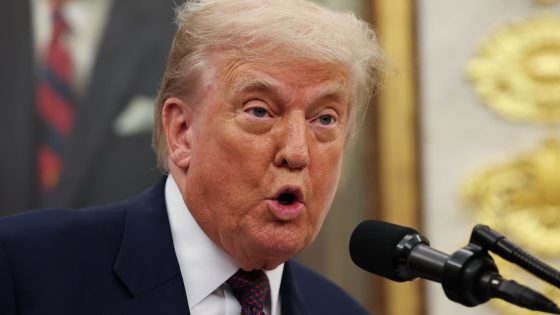In a significant move impacting global trade, U.S. President Donald Trump announced on August 6, 2025, a 100% tariff on imports of semiconductors and chips. This bold decision aims to encourage companies to manufacture their products domestically, a strategy that could reshape the tech landscape worldwide.
- Trump announces 100% tariff on semiconductors.
- Exemption for companies manufacturing in the U.S.
- Plan aims to boost domestic manufacturing efforts.
- Details on exemption criteria remain unclear.
- Tariffs may be implemented as soon as next week.
- Apple CEO Tim Cook involved in discussions.
During an Oval Office event with Apple CEO Tim Cook, Trump emphasized that companies committed to building in the united states would be exempt from these tariffs. However, details regarding the criteria for this exemption remain unclear, raising questions about the implications for international businesses.
This tariff announcement raises a crucial question: how will global markets respond to such drastic measures? The semiconductor industry is vital for various sectors, and this move could have far-reaching consequences.
- Companies may shift production to the U.S. to avoid tariffs.
- International markets could see increased prices for tech products.
- Countries reliant on semiconductor imports may face economic challenges.
- Global supply chains might experience disruptions as firms adapt.
As the global economy evolves, businesses must stay vigilant and adapt to these changes. Will companies prioritize domestic production, or will they seek alternative strategies to navigate this new landscape?
































